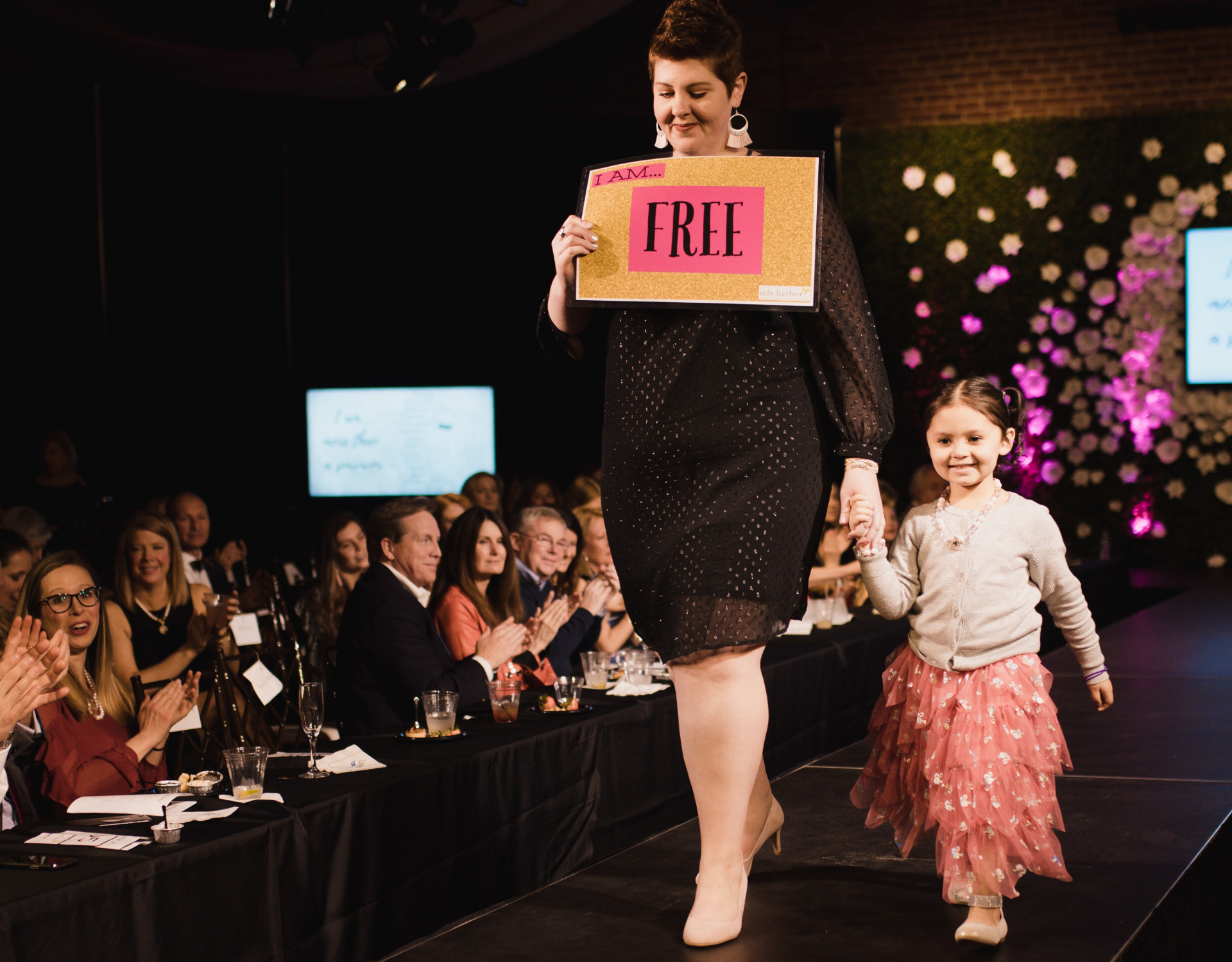by Carrie Pettit, Community Programs Coordinator, Safe Harbor
“That’s basically the message that is sent.” This last line spoken in this video clip is probably the most important one. Jennifer is talking about how her husband, father of her two young sons, had assaulted her and broken her nose. Her supposed offense was falling asleep after making his breakfast. She goes on to discuss his subsequent arrest for this and other violent attacks against her, the mother of his children. What she finds so funny or ironic is that breaking her nose with his bare hands was considered a misdemeanor, while bashing her over the head with a crystal bowl is a felony. To someone who is just trying to survive a violent, abusive partner the classification of one of those things being “less than” the other seems ludicrous. When you are just trying to survive a war on your identity, your body and your soul; everything feels like an all-out assault.
Yet what a victim takes away from that legal classification is that there are differences in the degree to which your partner can violate you. What they take away is that if you are brave enough to reach out for help and tell someone what is happening behind closed doors, every bruise, assault and threat will be dissected and judged and put into neat little categories for the purpose of deciding accountability for your attacker. The disconnect between the systems we have in place to hold an abuser accountable and the reality of the life and experience of a victim of abuse is enormous. For a victim to step outside of the carefully constructed bubble their abuser has placed them in is frightening. To then ask for help from a system that may have failed to protect them in the past is terrifying. To stand up to their abuser and say, “No more, I am done being harmed by you. I am done being controlled and manipulated and degraded by you” feels like they are facing death.
So instead of classifying and dissecting and judging what victims have experienced, we should celebrate their bravery and courage. As a community we should have systems in place that protect them and their children. We should tell them, “I am sorry that the person you trusted and loved most in this world has betrayed that trust and violated your body and soul.” We should offer them non-judgmental compassion, support, and safety. And thankfully, we have made some progress over the past years in providing a community that includes agencies and individuals within these systems to provide victims of abuse just that.
The CDC recently published a comprehensive and on-going study about Domestic and Sexual Violence in our nation. Based on statistics taken in 2010, they determined that 1 in 4 women have been the victim of severe physical violence by an intimate partner while 1 in 7 men experienced severe physical violence by an intimate partner. This does not encompass the many other forms of abuse that are used to retain dominance over an intimate partner such as emotional or psychological abuse, sexual abuse or financial abuse. Despite these staggering statistics, funding for services to victims of Domestic Violence has been cut (in some cases drastically) over the past several years. Furthermore, the Violence Against Women Act (VAWA) is currently in danger of not being renewed by Congress. VAWA recognizes the insidious and pervasive nature of domestic violence, dating violence, sexual assault, and stalking and supports comprehensive, effective and cost saving responses to these crimes. VAWA programs, administered by the Departments of Justice and Health and Human Services, give law enforcement, prosecutors and judges the tools they need to hold offenders accountable and keep communities safe while supporting victims. VAWA helps to support Safe Harbor’s counseling programs as well as other domestic violence/sexual assault programs throughout the United States.
If this video moved you in any way, please consider becoming part of the effort in our communities and in our nation to support victims of Domestic Violence. VAWA must be swiftly reauthorized before the end of 2012 to ensure the continuation of these vital, lifesaving programs and laws. Wednesday, November 14 is the National Day of Action for VAWA. You can help by contacting your representative in the U.S. Congress on or before Nov. 14. You can share the following message: “It is time for all members of Congress to work together to reauthorize a bipartisan Violence Against Women Act. Pass VAWA before you go home for the holidays. Do not miss this chance to help victims find shelter, help and justice. There is little time left, and victim’s lives and futures are in the balance.”
For more information about the CDC study please visit: http://www.cdc.gov/violenceprevention/nisvs/index.html
For more information about how to find your representative please visit: http://www.house.gov/representatives/find/



